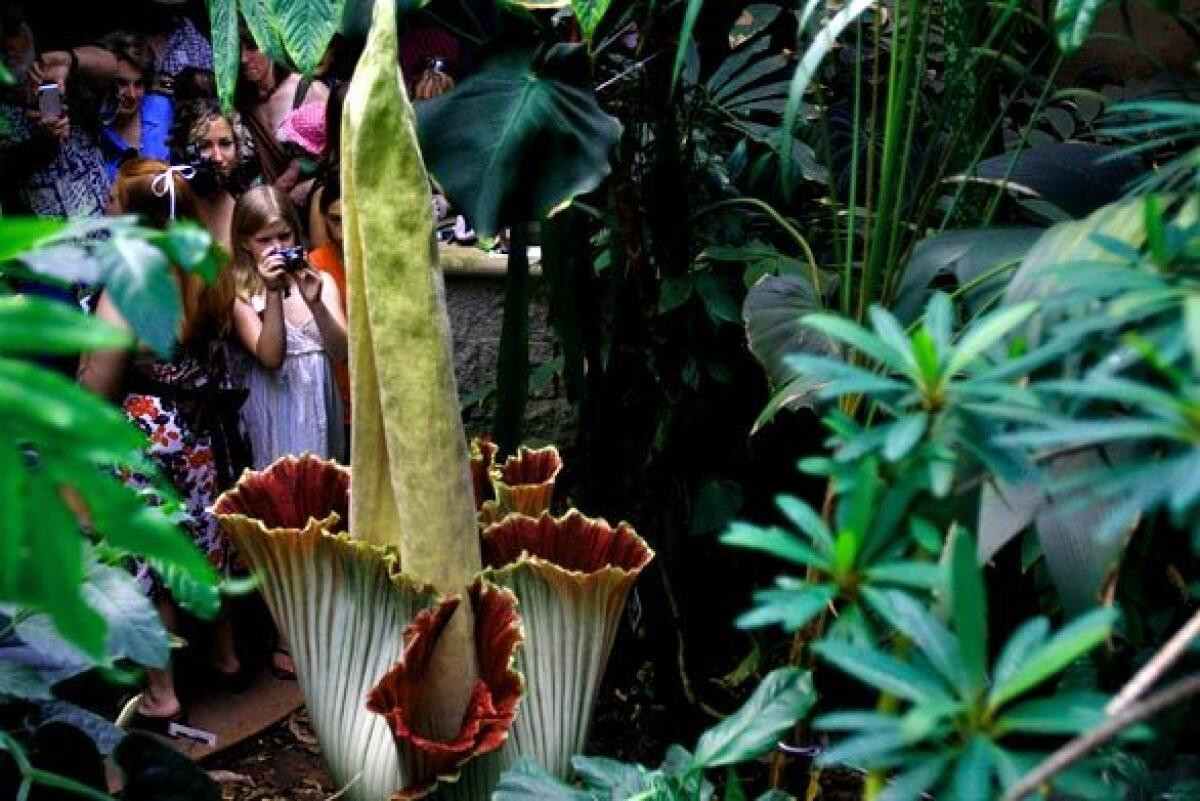The rotten-smelling corpse flower is about to bloom. Here’s how to watch it live

- Share via
The botanical world is confirming what we already know: 2020 stinks.
Although most of us are weary of our new virtual existence due to the coronavirus, those with hyperosmia (a hypersensitive sense of smell) will be pleased to know that they can watch the brief bloom of Amorphophallus titanum, otherwise known as the corpse flower, in real-time on the Huntington Library’s Conservatory webcam.
The world’s largest flower is famed for its enormous and foul-smelling bloom and is a popular draw at the Huntington, and other botanical gardens on the rare occasion that it blooms.
When the stinky plant flowered at the Huntington last summer, for example (the three that bloomed the year before were dubbed “Stink,” “Stank,” and “Stunk”), people lined up for the chance to catch a whiff of what some describe as rotting meat.
“Previous blooms have always drawn huge crowds,” said Huntington spokesperson Lisa Blackburn. “This year, because of COVID-19 restrictions and the need for social distancing, the Conservatory building remains closed and visitors won’t be able to see — or smell — this particular stinker in person. A webcam will let visitors follow the flower’s bloom cycle in real-time, but until we can come up with scratch n’ sniff technology, a vivid imagination will have to conjure up the infamous stench. It has been described as smelling like everything from rotten eggs and overcooked Brussels sprouts to dirty gym socks.”
So what’s the point of a “stinky plant” if you can’t smell it?
The tropical plant, which is a member of the Araceae family, has a magical, otherworldly appearance. It features a tall, fleshy column called a spadix and a frilly outer covering called a spathe. When the plant flowers, the spathe opens to reveal deep red flowers that emit a foul odor that draws pollinators.
Adding to the plant’s fascinating mystique is that after all that waiting, its bloom will only last 2-3 days.
Blackburn predicts the plant will bloom in approximately 10 days. With more than 40 corpse flowers in the Huntington’s greenhouse, let’s hope we’ll be lining up for a whiff of offensive blossoms in 2021.
More to Read
Sign up for The Wild
We’ll help you find the best places to hike, bike and run, as well as the perfect silent spots for meditation and yoga.
You may occasionally receive promotional content from the Los Angeles Times.










